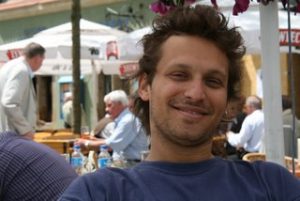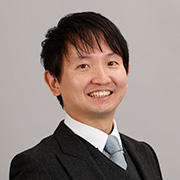Self-adaptive systems are required to adapt its behaviour in the face of changes in their environment and goals. Such a requirement is typically achieved by developing a system as a closed-loop system following a Monitor-Analyse-Plan-Act (MAPE) scheme. MAPE loops are a mechanism that allows systems to monitor their state and produce changes aiming to guarantee that the goals are met. In practice it is often the case that to achieve their desired goals, self-adaptive systems must combine a number of MAPE loops with different responsibilities and at different abstraction levels.
Higher-level goals require decision-level mechanisms to produce a plan in terms of the high-level system actions to be performed. Various mechanisms have been proposed and developed for automatically generating decision-level plans (e.g., event-based controller synthesis), providing guarantees about the satisfaction of hard goals (e.g., providing a certain level of service), and supporting improvements in soft goals (e.g., doing this in an efficient or cost-effective manner). These decisions are often made at a time scale of seconds to minutes.
Lower-level goals, on the other hand, typically require control mechanisms that sense the state of the system and environment and react at a fine time granularity of milliseconds. Solutions to this problem are typically based on classical control theory techniques such as discrete-time control.
A successful adaptive system, then, must find ways to integrate these multiple levels of control, leading to an important question of how best to do that, and what concepts. Additionally, concepts from classical control theory (typically applied at low levels of control) can also be useful in understanding higher-level control.
Recently the software engineering community has begun to study the application of control theory and the formal guarantees it provides in the context of software engineering. For example, the 2014 Dagstuhl Seminar “Control Theory meets Software Engineering”, is an example of such recent interest. That seminar discussed a variety of possible applications of control theory to software engineering problems.
Also, and perhaps more relevant, is the first CASaS Shonan seminar held in 2016. The seminar focused on formal guarantees that can be provided in self-adaptive systems via the use of control theory (e.g., event-based controller synthesis and discrete-time control). The seminar was a success in many respects. It had over 30 attendees from more than 10 countries. The seminar was an active gathering of outstanding researchers in both control theory and software engineering, and provided a forum in which discussions on the connections between control theory and software engineering for self-adaptive systems could be held. While summary report was submitted to the Shonan office after the completion of the seminar, additional findings and discussions triggered by the seminar are now being discussed and written up for self-adaptive systems research community. Also, a survey after the seminar showed that 100% of the attendees felt satisfied or very satisfied with the seminar, and 61% of them were very satisfied. Most of the attendees expressed their intention to continue studying and discussing the relation between control theory and software engineering, which was highlighted as key to address with the requirements of self-adaptive systems.
As in the first edition we expect to involve a group of active researchers in key areas such as Self-Adaptive Systems, Control theory, Game theory, Software Engineering, and Requirements Engineering, creating an ideal environment to discuss current and future applications and possibilities of control theory as a mechanism to provide formal guarantees for self-adaptive systems (e.g., convergence, safety, stability). Encouraged by the success of the first CASaS meeting, we expect to have a number of participants from a wide variety of research areas to further explore the benefits of incorporating the application capabilities and formal framework provided by control theory to self-adaptive systems.
Among the research questions that we expect to discuss are: How to coordinate multiple levels of adaptive control? What kinds of properties from classical control theory can be applied at higher levels to guarantee certain properties? To what extent does the domain and contest of use influence the design of a control regime for adaptation? In what ways can AI techniques of planning and machine learning be applied to adaptive systems? How can one deal with uncertainty in a systematic fashion? How can control theory inform our decisions about ways to incorporate humans into self-adaptive systems?
We envisage the 5-day meeting to be organised in two main parts. During the first day, participants will present their background and what they are interested in. Then, for the remaining four days, we will identify and discuss the most relevant topics selected by the participants in working groups. Finally, we plan to summarise the workshop findings and propose future actions.
We expect the meeting to encourage participants from different areas and communities to interact and actively search for common interests that may result in possible collaborations and joint work.

